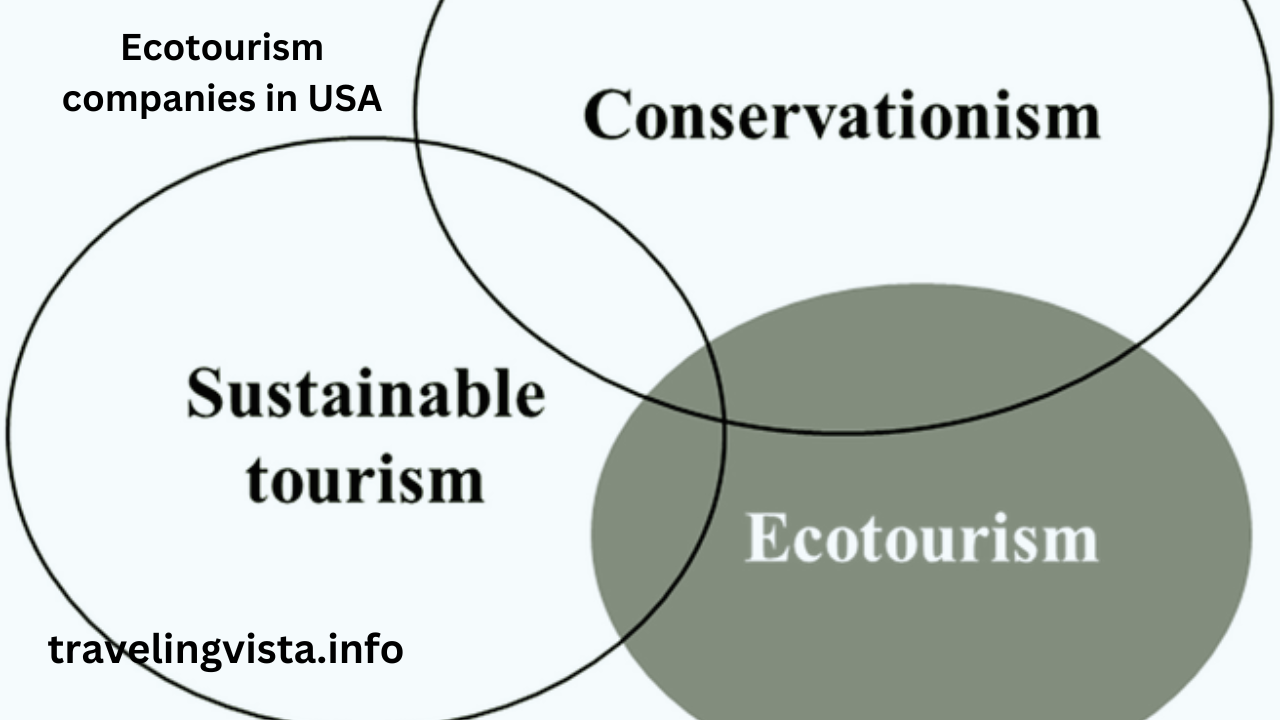Fearing the future while enthusiastically promoting foreign travel may seem a bit counterintuitive, but we humans are creative beings. Traveling responsibly need not involve lectures and hostility, nor does it have to be a painful experience. Whatever you choose to call it—eco-tourism companies, regenerative, ethical, sustainable, or eco-travel—there’s a lot to get enthusiastic about.
More and more eco-friendly ecotourism companies are designing itineraries that satisfy inquisitive minds with minimal environmental damage.
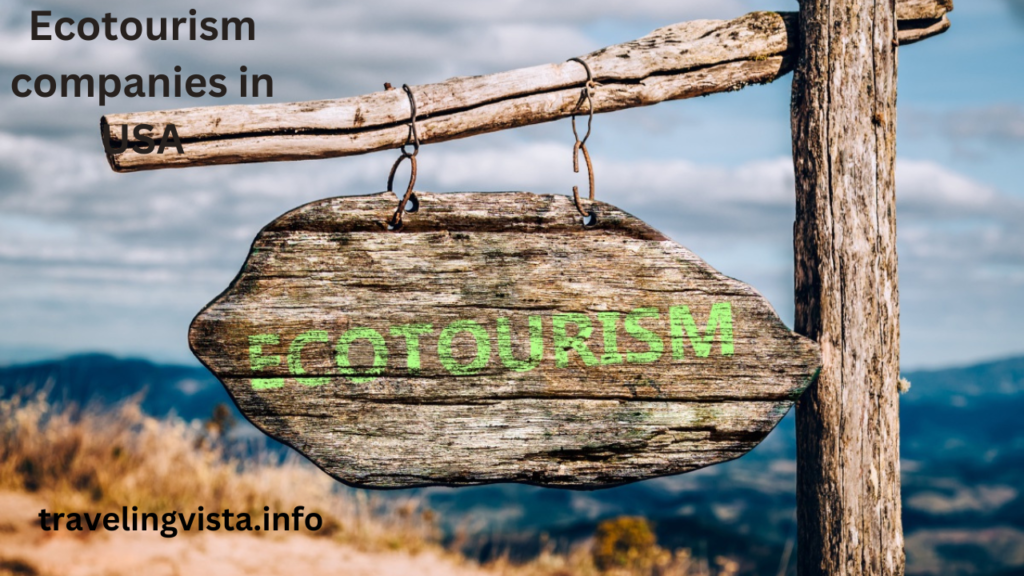
From climbing in isolated mountaintops to exploring the most magnificent national parks on earth, the experiences are breathtaking and enable travelers to interact with the places in a way that goes far beyond the surface. Look no further if you’re searching for a travel agency that values the environment and ethics for your upcoming trip.
Byway Travel:
Byway, one of the ecotourism companies’ platforms based in the UK, has set itself an ambitious mission statement that includes the objective of mainstreaming flight-free vacation options. How do they go about achieving this? through promoting the joys of leisurely, overland travel throughout Europe and the British Isles. In an effort to lower flight emissions, founder and CEO Cat Jones founded the now-certified B Corporation during the initial Covid shutdown. Her justification was straightforward: if our current course is maintained, aviation emissions would quadruple by 2050.
Gondwana Ecotours:
With its name derived from the ancient supercontinent that progressively broke up into the geographical masses we know today, Gondwana Ecotours one of the best ecotourism companies claims that one trip at a time, it is bringing people from different continents closer together. The New Orleans-based company specializes in small-group and private excursions that travel on thrilling global adventures, such eco-adventures in Mendoza and Patagonia and gorilla trekking in Rwanda.
One of Gondwana’s most important features is its network of local guides who not only provide revenue from tourism but also contribute personal expertise, depth, and authenticity to the experience. The company has also made a commitment to reduce its carbon footprint by using eco-friendly travel methods, and it has offset more than 580 tons of carbon emissions. According to certification from the Cooler emissions tracking organization, its excursions have been completely carbon neutral since 2021.
Intrepid Travel:
Intrepid, an Australian-owned ecotourism companies has always made no bones about how committed it is to moral and decent business operations. It was accredited as a B Corporation in 2018, making it one of the pioneer international travel agencies. With meticulous measurement and 13 years of carbon offsets for all inevitable carbon emissions, it has been the largest carbon-neutral business in the world since 2010.
Their journeys are equally remarkable. From nine-day itineraries centered around baby gorilla naming ceremonies in Rwanda’s breathtaking Volcanoes National Park to 15-day expeditions navigating the amazing gorges and isolated villages of northern Pakistan’s Hunza Valley, Intrepid offers true bucket list travel experiences appropriate for visitors of all interests and skill levels.
The company unveiled a seven-point climate commitment plan in 2020 as part of the Tourism Declares A Climate Emergency initiative. The plan stated the company’s goal to switch to using only renewable energy in offices by 2025 and on all excursions by 2030.
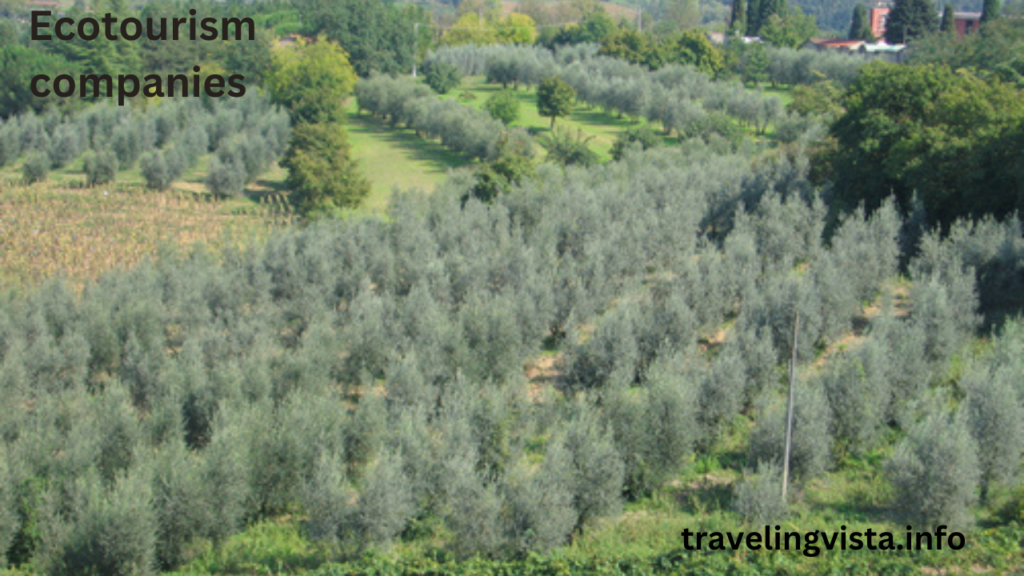
Experience Travel Group:
Experience Travel Group, a travel expert in Asia, operates under the motto “travel should be about reciprocation.” This approach puts an emphasis on responsible travel, allowing visitors to engage with locals and have a genuine cultural immersion experience every time.
The group, who are also accredited as a B Corporation, is committed to developing experiences that take visitors away from hip neighborhoods and large hotels. Instead, they create custom itineraries that include community service projects as part of the package.
While on travels in, say, Indonesia, Laos, Cambodia, Myanmar, Thailand, and Vietnam, visitors can savor delectable regional fare at “social enterprise” eateries that provide jobs and job training to needy youth.
Seacology:
While conducting forest research in Samoa in 1990, American ethnobotanist Dr. Paul Cox received word from local leaders that 30,000 acres of virgin rainforest were going to be cut down to pay for a school. Appalled, Cox came up with a plan to secure the funding required to permanently protect the forest. His strategy was successful and has come to characterize the Seacology model: offer tangible advantages to communities that commit to safeguarding their natural resources.
Seacology ecotourism companies now provides travelers with unique ecotourism experiences on islands across the globe, allowing them to visit ongoing projects, engage with locals, and contribute to the preservation of both communities and habitats. While staying at luxurious resorts and touring significant cultural landmarks, Seacology tourists also discover fascinating island settings, such as the coral reefs of Fiji and the jungles of Borneo. There will be lots of chances to kayak, walk, scuba dive, and snorkel amid all this tropical beauty.
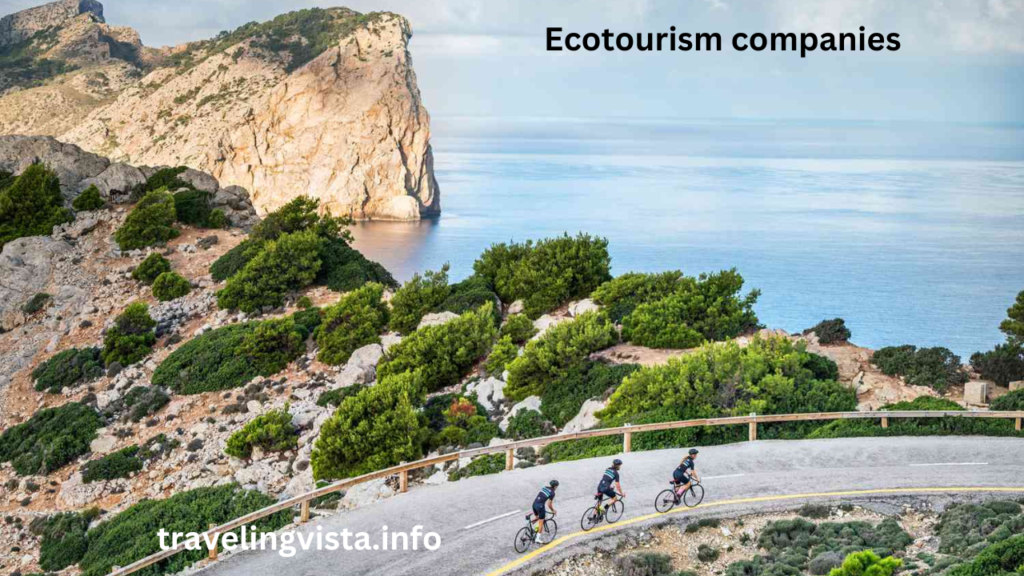
Discover corps:
With an emphasis on children, schools, animals, and wildlife protection, Discover Corps ecotourism companies is the pioneer in the quickly expanding industry of “volunteer vacations.” Indeed, “voluntourism” has grown to be a catchphrase used to profit from flimsy assertions, drawing criticism and examination over time. Nonetheless, Discover Corps functions in a transparent manner and has established itself as a kind of benchmark for the concept.
Itineraries for trips are created to help visitors engage with local people and gain a better understanding of the customs, problems, and lifestyles of many parts of the world. Africa, Asia, and Latin America are home to a plethora of programs ranging from helping to save animals in South Africa’s Greater Kruger National Park region to providing care for elephants in Thailand.
Row adventures:
Since ROW Adventures was founded in the US Pacific Northwest as a whitewater rafting ecotourism companies, it has developed into an adventure travel firm that promotes the life-changing potential of experiences powered by people. Positive effects arise from ROW’s belief that bringing people into contact with nature. The company is committed to conducting business in an inclusive and sustainable manner, fostering social justice, environmental stewardship, and accountability. Trekking throughout Machu Picchu, sea kayaking among orcas in Canada, or white water rafting in Idaho’s Salmon River are examples of human-powered sports that let people completely see the environment.
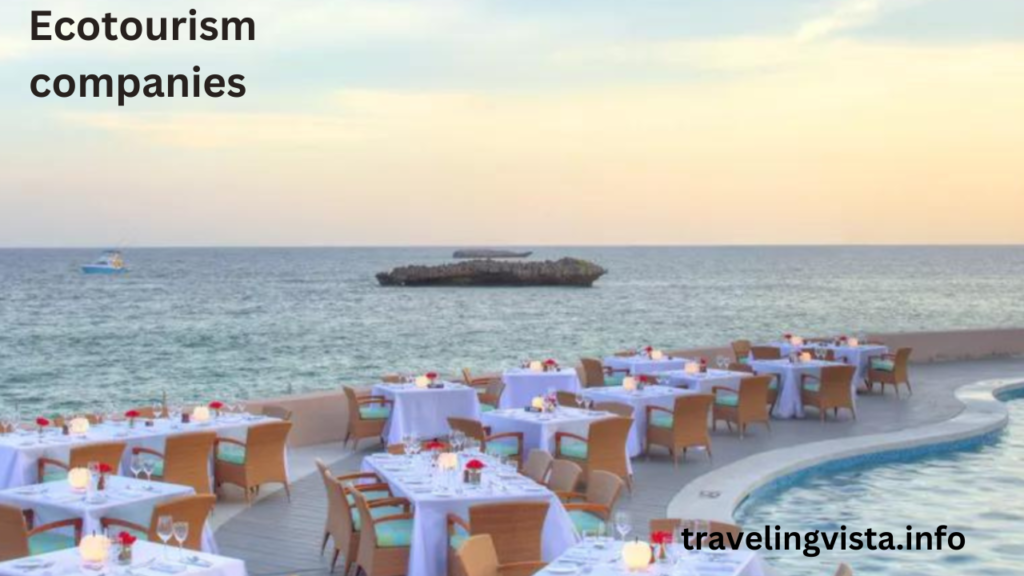
Natural Habitat adventures:
Natural Habitat Adventures is the official travel partner of World Wildlife Fund, and it operates under the motto of conservation thru adventure. These ecotourism companies known as Nat Hab, is dedicated to providing eco-friendly nature travel and emphasizes that its guests should become change agents by tackling the planet’s most urgent conservation issues. Examples of the company’s adventures where tourism earnings constitute a significant incentive for communities to safeguard their natural resources are South American nature tours, African safaris, and polar bear tours in the Canadian Arctic.
Nat Hab also admits to being a major source of CO2 emissions for its 8,000 travelers who visit all seven continents each year. The business looks to compensatory ways to reduce travel’s carbon footprint. Being the first travel firm in the world to operate entirely carbon-neutrally, Nat Hab offset 49,418 tons of carbon dioxide between 2007 and 2019. Furthermore, they have contributed over $4.5 million to aid WWF’s worldwide conservation endeavors and will persist in contributing one percent of total sales plus $150,000 every year to the organization’s worldwide objective.
Cheeseman’s Ecological Safaris:
When Doug and Gail Cheeseman, husband and wife entrepreneurs, launched their namesake ecotourism companies in 1980, they had in mind ecology safaris that would appeal to wildlife aficionados seeking an immersive experience in nature. Gail, a naturalist, and Doug, a college biology and ecology professor, combined their love of the outdoors to create a travel firm that specializes in extensive wildlife excursions across the world. Tours are tailored for die-hard animal enthusiasts who are fascinated with travel and appreciate learning about the species they come across, working with local guides and wildlife specialists.
Quark Expeditions:
The first commercial travelers reached the North Pole in 1991, marking the completion of the first-ever Northeast Passage tourist transit, led by Quark Expeditions co-founders Lars Wikander and Mike McDowell. Leading the company to the forefront of polar explorations, that first mission turned out to be a game changer. Some of the most isolated regions of the Arctic and Antarctic have been explored by its polar explorers in the thirty years that have passed.
Quark is dedicated to promoting environmental consciousness through eco-friendly tourism, given that the planet’s polar regions are under threat from climate change. The business’s Polar Promise, which calls for it to lessen its environmental impact and collaborate with other prominent figures in the sector and visitors to tackle the difficult problems the areas face, is one aspect of this dedication.
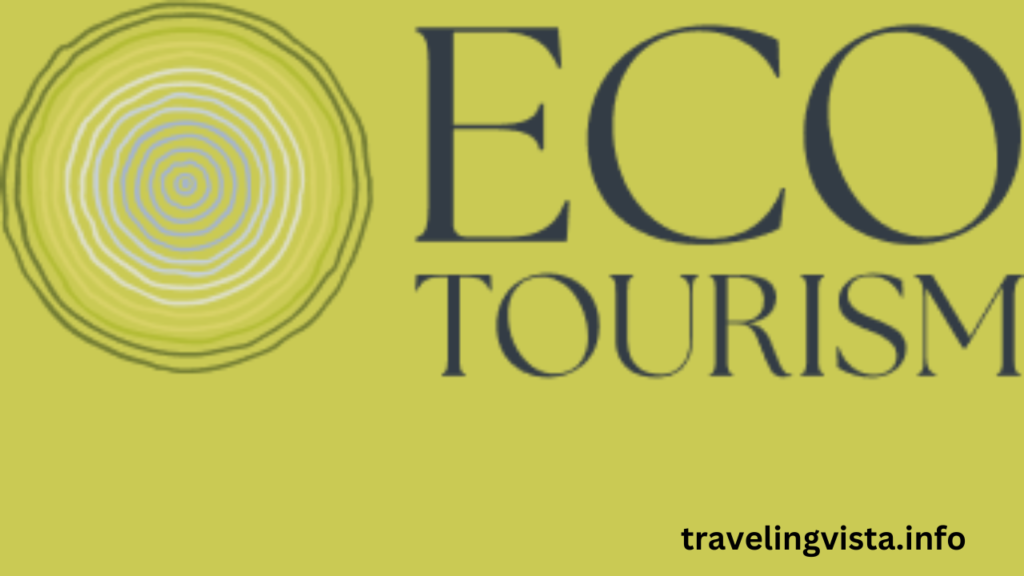
Lindblad Expeditions:
With a fleet of tough, specially designed ships, the Lindblad Expedition experience focuses on environmentally sustainable journeys to some of the most untamed and isolated coastal locations on the planet. The tourism agency has been sailing its ships to fascinating locations that few, if any, other tour operators have visited for more than 50 years.
An instance? Tens of thousands of majestic king penguins can be seen during the 17-day journey across South Georgia and the Falklands. Visitors can also kayak alongside inquisitive fur seals. The company takes a more aggressive approach to environmental sustainability, claiming that regenerative tourism is a superior model that seeks to leave a place “better” than it was before, while sustainable tourism mostly revolves around the idea of doing no harm.
Joro Experiences:
Expert in luxury and adventurous travel, Joro measures and accounts for all of its emissions in order to minimize its carbon impact as much as possible. The aim? to identify creative strategies for impact reduction that exclusively use reliable sources to offset emissions that cannot be avoided. From South African safaris and Icelandic fjord sailings to emulating Antarctic explorer Ernest Shackleton and searching for Macaws in the Brazilian Amazon, this carbon-neutral company creates customized travel experiences to nearly every destination on Earth.
Earth watch Institute:
The foundation of Earth watch Institute, ecotourism companies a global non-profit that links travelers with scientists across the globe to take part in environmental research, is the importance of citizen science. Earth watch inspires its consumers to recognize their shared global obligations as global citizens while funding important research through travel.
Since the Institute’s founding in 1971, it has been a pioneer in the citizen science model. Some of its expeditions have documented pink river dolphins in the Amazon, worked to protect endangered rhinos in South Africa from poaching, and searched for answers to the question of why the number of endangered Pacific leatherback turtles in Costa Rica is declining.
National Geographic expeditions:
With the founding of its travel branch by the esteemed National Geographic Society in 1999, National Geographic Expeditions has expanded to handle hundreds of trips to all seven continents each year. Nat Geo’s travel division designs upscale eco-expeditions for adventure, nature, and exploration, as one might expect from a non-profit whose goal is to explore and protect the planet. These include land expeditions in the world’s most remote jungles and highest mountains, as well as expedition cruises to the poles, the South Pacific, and Asia.
FAQS:
Does America have Ecotourism companies?
National parks and state parks have long engaged in ecotourism. Actually, the legislation establishing the national parks service that we are familiar with was signed into law by President Woodrow Wilson on August 25, 1916. The establishment of national parks aimed to support the preservation of various natural regions around the United States.
What is meant by Ecotourism companies?
Eco-friendly travel agencies place a high priority on social responsibility, cultural preservation, carbon reduction, and environmental conservation. This indicates that they are using your tourism money to improve the locals’ quality of life in terms of the economy and society, as well as the environment.
Who is the leader in world Ecotourism?
Why is sustainability and ecotourism in Costa Rica regarded as global leaders? For its commitment to environmental preservation and promoting ecotourism, this small Central American nation has received recognition from all around the world.
Who funds Ecotourism companies?
WWF’s travel department and Panda Tracks, their newsletter, both promote ecotourism. Ecotourism benefits environmental protection in the end, which is why World Wildlife Fund promotes it.
Conclusion:
The global ecotourism companies are characterized by intense competition because there are many participants in the business. Hotels and resorts, tour operators, adventure travel businesses, and conservation organizations are some of the major players in the market.
These businesses compete on attributes including cost, reputation, service quality, and environmentally friendly policies. To attract eco-aware tourists, a few major participants in the industry are emphasizing sustainability and responsible tourism methods.
In order to boost their marketing initiatives and increase the clientele’s experience, they are also utilizing social media and technology. These are the best 14 ecotourism companies in the United States. I hope it will beneficial for you. In case of any difficulty contact us through our link on website. Thanks.

